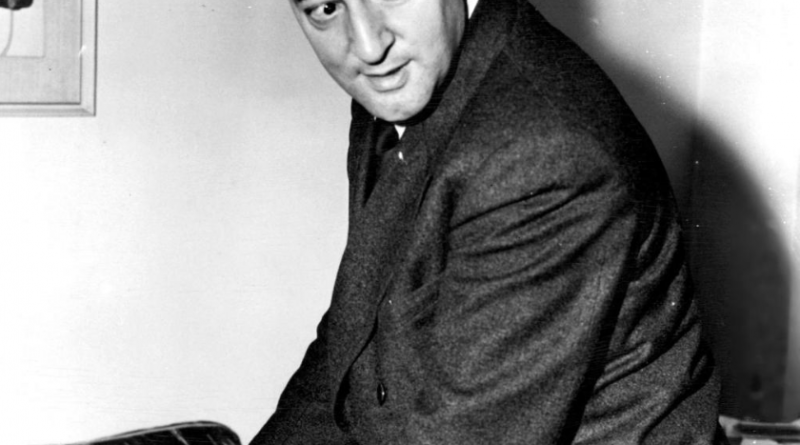Konrad Heiden: Warnings Unheeded in the Weimar Republic… and Today
In the annals of historical scholarship, few have possessed the foresight and clarity of Konrad Heiden, a journalist and author who, amidst the turmoil of the Weimar Republic, discerned the ominous trajectory of Adolf Hitler and the Nazi Party. His penetrating observations, articulated with a prescience that went largely unheeded in his era, resonate with unsettling intensity in contemporary America, particularly in the context of the Trump presidency and the MAGA movement. This essay explores Heiden’s seminal critiques of Nazism and juxtaposes them with recent American political phenomena, underscoring the echoes of history in our modern epoch.
A Voice in the Wilderness: Konrad Heiden’s Chronicle of the Nazi Rise
Konrad Heiden, born in 1901, emerged as a beacon of journalistic integrity during one of history’s darkest chapters. His writings, notably “History of National Socialism” and “Der Fuehrer: Hitler’s Rise to Power,” were not mere chronicles of events but urgent entreaties to recognize the existential threat posed by Nazism. Among his most poignant observations was the role of charismatic leadership in the Nazi ascendancy. Heiden remarked, “What distinguished Hitler from all other demagogues was his deep understanding of mass emotion. He knew how to play upon the soul of the crowd as on an instrument.” This insight is particularly salient when paralleled with Donald Trump’s populist appeal, a charisma that, while distinct in style, similarly harnessed the grievances and tribal impulses of a significant segment of the American populace.
The Propaganda Machine and the ‘Lügenpresse’
Heiden was acutely aware of the Nazis’ insidious use of propaganda and their vilification of the press. He wrote, “The power of the propaganda machine lay not in its telling lies but in its exploiting the uncertainty, the haziness, the nebulousness of certain notions, in its making use of half-truths.” This manipulation of reality finds a contemporary analog in the “fake news” phenomenon, where mainstream media outlets are often branded as deceptive by Trump and his adherents, sowing distrust and constructing an alternate epistemological framework for millions of Americans.
The Underestimated Threat and the Judiciary’s Transformation
Central to Heiden’s narrative was the tragic miscalculation by German conservatives who believed they could control Hitler. This underestimation bears a resemblance to the initial dismissal of Trump as a transient, fringe candidate by many in the U.S. political establishment. Moreover, the recent overturning of Roe v. Wade, a development that seemed implausible to many observers just a few years ago, underscores the transformative and unpredictable nature of populist political movements. The judiciary’s shift to the right, culminating in the reversal of the landmark ruling, exemplifies the far-reaching consequences of such actions, extending beyond immediate policy concerns to the reshaping of societal norms and legal frameworks.
Conspiracy, Insurrection, and Democracy’s Resilience
Perhaps the most haunting parallel between Heiden’s era and today is the assault on democratic institutions. The insurrection of January 6, 2021, stands as a stark reminder of democracy’s fragility, echoing the violent tactics employed by the SA under Hitler. Heiden’s work poignantly captures the atmosphere of pre-war Germany, offering a mirror to contemporary America, reflecting not an identical reality but cautionary parallels that demand attention and introspection.
Conclusion
Konrad Heiden’s legacy is not just a testament to journalistic courage but also a stark reminder of the dangers journalists face when confronting authoritarian figures and movements. Heiden himself was eventually driven out of the Weimar Republic, a fate that underscores the risks inherent in speaking truth to power. Today, we witness unsettling echoes of this in the United States. The recent rally incident where former President Trump suggested journalists be threatened with prison rape for not revealing their sources — and the crowd’s positive reaction to this — is a chilling reminder of the precarious position of the free press in contemporary America.
The parallels between Heiden’s experiences and the current American landscape are not direct correlations, but they are echoes — echoes that remind us of the perennial vigilance required to safeguard liberty, the rule of law, and democratic institutions. In these echoes, we find the wisdom of the past, warning lights illuminating the path of the present, guiding us away from the precipices that once led to humanity’s darkest abysses. The threats faced by journalists today, exemplified by Trump’s violent rhetoric, highlight the ongoing relevance of Heiden’s warnings and the essential role of a free press in maintaining a healthy democracy.

